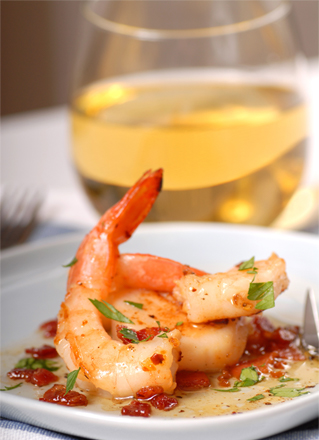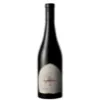
The Ultimate Guide to
CHARDONNAY
Chardonnay is one of the world's most popular white wines, beloved for its versatility, ranging from crisp and mineral to rich and buttery. Whether it's fresh, crisp, and unoaked Chardonnay or something richer and more complex, this grape has something to offer wine lovers of all preferences.
Chardonnay is one of the world's most popular white wines, beloved for its versatility, ranging from crisp and mineral to rich and buttery. Whether it's fresh, crisp, and unoaked Chardonnay or something richer and more complex, this grape has something to offer wine lovers of all preferences.
What is Chardonnay?
Chardonnay is a green-skinned white grape variety that originated in the Burgundy region of France. It is used to make both still and sparkling white wines all over the world. The grape itself is relatively neutral, which means it takes on characteristics from its growing environment and winemaking techniques.
Chardonnay Flavour Profile
Chardonnay flavours vary dramatically across climate regions. Here are some typical tasting notes:
Cool Climate Chardonnay
- • High acidity
- • Mineral and citric, green apple, tart
- • Crisp and refreshing finish
- • Often unoaked with no wood
Warm Climate Chardonnay
- • Fuller bodied, more drinking
- • Tropical fruit like pineapple or mango
- • Often richer and balanced
- • Sometimes oaked, giving a nutty & other oak-related
Oak Aged Chardonnay
Aged in oak barrels creating vanilla & spice characters. More full-bodied and complex. May also experience malolactic fermentation, which adds buttery & other characteristics to the wine.
Unoaked Chardonnay
Fresh, clean & food friendly. Highlights natural fruit flavours - primary notes of citrus, stone fruits and often elements of minerality and tartness.
Top Chardonnay Producing Regions
Chardonnay is produced across the world from France to California for ages, considered a benchmark for the style.
France
Chablis: Crisp, mineral-like, cool and steely from mineral-rich soils
Côte de Beaune: Complex, age-worthy wines with minerality and regal fruit
United States
California: Rich, full-bodied, often oaked and tropical fruit-forward from warmer growing regions
Oregon: Cool-climate Chardonnay with higher acidity and mineral-driven styles, fresh and minerally
Australia
Adelaide Hills, Yarra Valley and Margaret River: Cool wine climate, fresh and fruit-forward styles when done correctly
New Zealand
Hawke's Bay and Central Otago: Excellent cool wine- good acidity and citrus flavors, often fully-rounded
South Africa
Excellent modern styling; cool and fresh- mineral styles; also coming out of regions close and recently

Chardonnay Food Pairings
Chardonnay's versatility means it pairs perfectly with:
Unoaked:
Oysters, sashimi, sushi, goat cheese
Lightly Oaked:
Roasted chicken, creamy pasta, scallops
Full-bodied Oaked:
Lobster with butter, pork chops, rich mushroom risotto
Chablis:
Shellfish, fresh salads, cheeses like Comte.
Aged Chardonnay:
Most red fish roe, such as sea urchin
Chardonnay in Sparkling
Chardonnay is one of the three main grapes used in Champagne (along with Pinot Noir and Pinot Meunier). Blanc de Blancs Champagne is made exclusively from Chardonnay and is known for its elegance, citrus-driven acidity, and aging potential.
Tips for Choosing a Chardonnay
Prefer crisp, dry white wines? Try unoaked Chardonnay from Chablis or New Zealand.
Love creamy, rich whites? Look for barrel-aged options from California or Australia.
Want something in between? Explore regions like Oregon or Burgundy, which balance fruit and minerality beautifully.
Fun Facts about Chardonnay
- Chardonnay is one of the most widely planted white grapes in the world.
- It’s often called a “winemaker’s grape” because it adapts so well to different styles.
- The infamous “ABC” (Anything But Chardonnay) movement began in the 1990s as a backlash against overly oaked styles, but modern Chardonnays are far more balanced and refined.
Why Chardonnay Deserves Your Attention
Whether you're seeking fresh and crisp or rich and buttery, Chardonnay offers something for everyone. From crisp and refreshing to rich and buttery, its incredible range of styles means there's always a new dimension to explore.
So the next time you're browsing wine choices or planning a dinner pairing, don't overlook Chardonnay—it might just surprise you.











